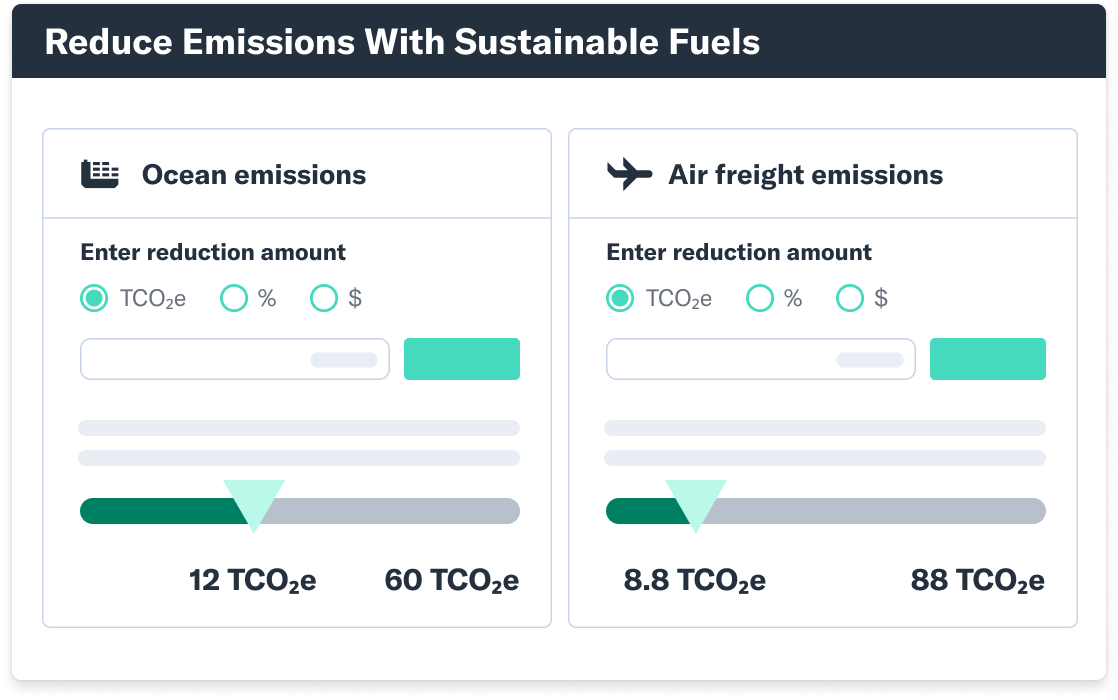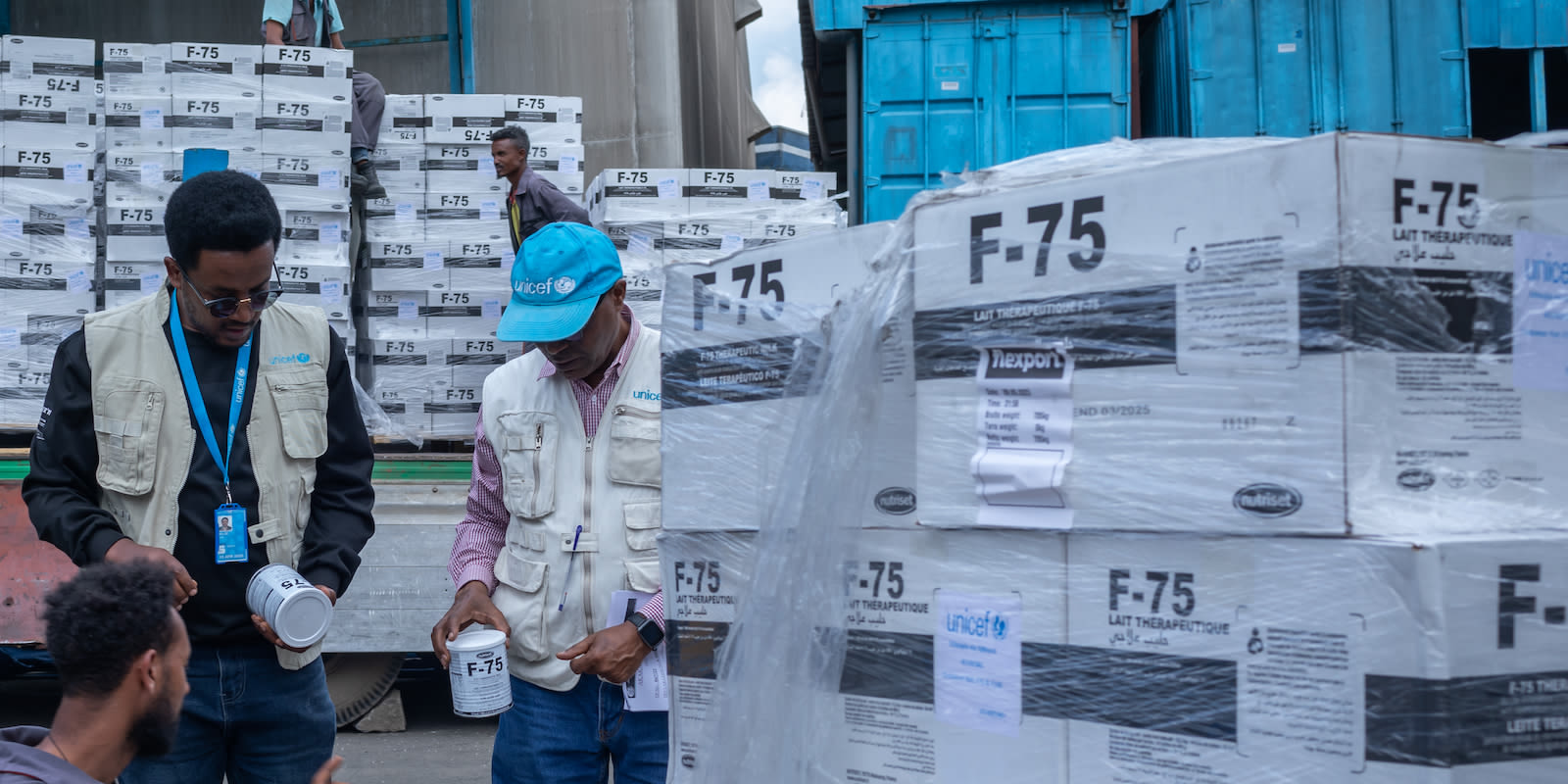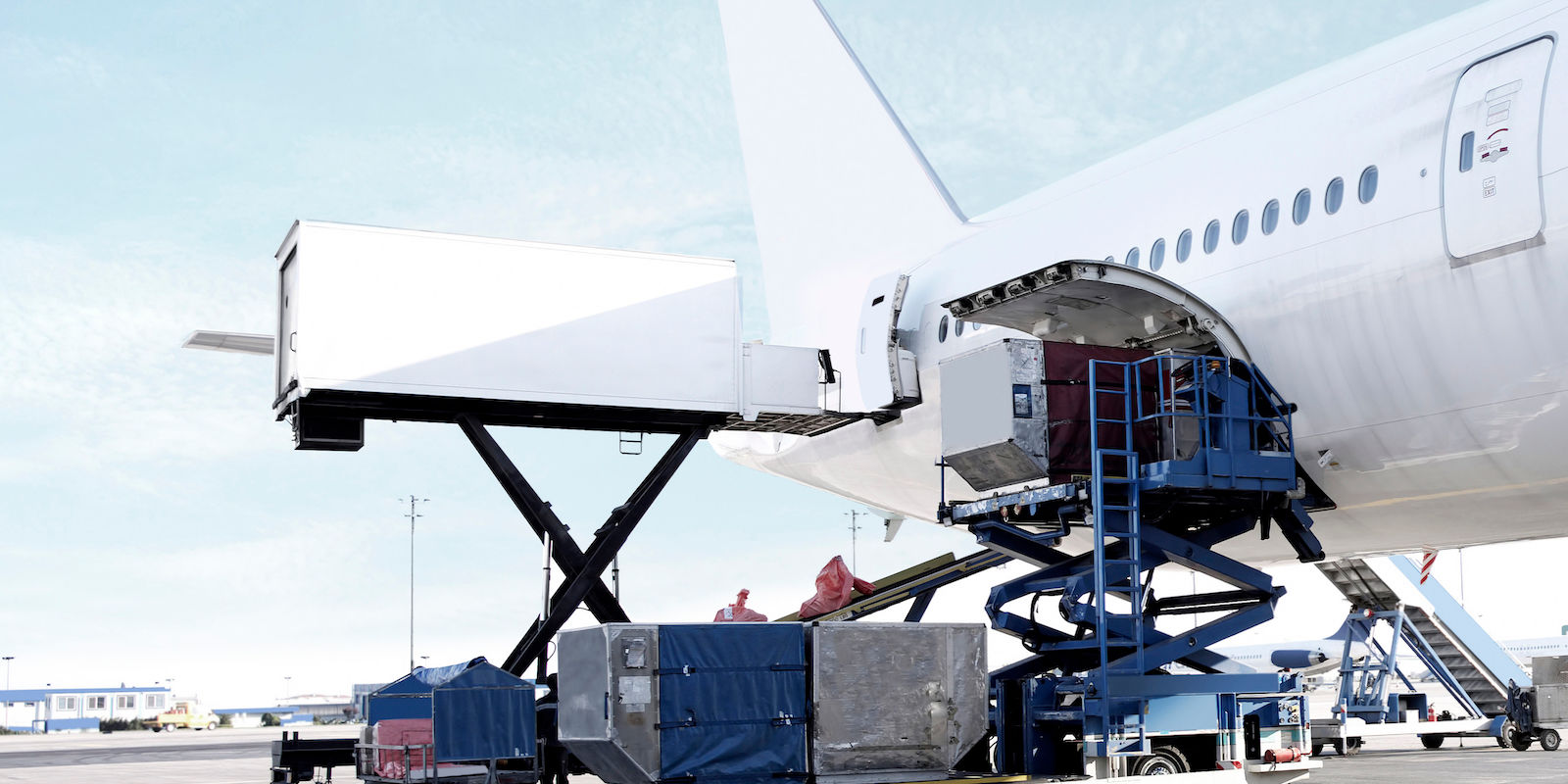
2023 年 11 月 09 日
Decarbonizing the Aviation Sector: Introducing Flexport’s Sustainable Aviation Fuel Program
Tags:
Decarbonizing the Aviation Sector: Introducing Flexport’s Sustainable Aviation Fuel Program

Aviation accounts for roughly 2% of global CO2 emissions, a number that is expected to increase in the decades ahead. There’s no time like the present to start making progress toward lowering the emissions footprint of air freight. Yet, unlike other sectors with multiple decarbonization tools and technologies available to them, aviation has immense energy demands, therefore limited options exist. The solutions that do exist are not in widespread use today.
As the most carbon-intensive sector of transportation, aviation is under increasing scrutiny for its greenhouse gas emissions. In October 2022, the body governing air transportation–the International Civil Aviation Organization (ICAO)–committed to net-zero emissions across global air transport by 2050, highlighting the need for this sector to take action now.
While aviation emissions may be hard to abate, options exist today that can help put us on the path to meeting this necessary target.
Introducing Flexport's Sustainable Aviation Fuel Program
Sustainable aviation fuel (SAF) is a low-carbon alternative to conventional jet fuel and is recognized as the best tool currently available to decarbonize air transport (its lifecycle greenhouse gas emissions are typically a fifth of those from conventional jet fuels). Governments are already recognizing the importance of SAF to decarbonization efforts—the European Parliament has adopted new requirements for aviation fuel, mandating an incremental increase in the use of SAF from 2025 onwards. In the United States, the Sustainable Aviation Fuel Grand Challenge and incentives in the Inflation Reduction Act are intended to scale SAF production in the U.S. significantly over the next decade.
SAF represents one of the most (if not the most) critical pathways for decarbonizing aviation in the short term. This is why Flexport is thrilled to officially launch our sustainable aviation fuel program.
Flexport.org’s sustainable aviation fuel program empowers businesses to actively take action on the carbon emissions from their air freight shipments. The program leverages a book and claim chain of custody model through which sustainability attributes associated with a physical product are separated from the physical flow of the product. In aviation, book and claim is a model that enables aviation customers to purchase the environmental benefits associated with a specific amount of physical SAF (as compared to traditional jet fuels) without being connected to that physical SAF supply.
When applied to SAF, as sustainable fuel is produced and consumed, companies can "book" a purchase of the sustainability benefits from SAF without being directly connected to the physical product. In return, the company receives a SAF certificate to lay "claim" on the environmental attributes, which they can use to apply reductions towards their own corporate carbon footprint. Through book and claim, companies are able to support emissions reductions within the transportation value chain by directly contributing to the decarbonization of the aviation sector.

Through this system, no changes to your supply chain are required—you can purchase SAF certificates for any air shipment emissions, regardless of the trade lane or carrier.
Flexport partners with CHOOOSE—a SaaS provider empowering businesses to take climate action—to provide access to SAF certificates for our customers. This new service complements Flexport’s existing service for ocean shipments, wherein Flexport partners with GoodShipping to offer marine biofuels via a book and claim system. Our low-carbon fuel services are accessible within the Flexport Platform’s Sustainability Dashboard, allowing users to quickly and easily monitor their progress towards sustainability goals.
SAF will play a vital role in the aviation sector's transition to a low-carbon future by offering a practical and scalable solution to reduce greenhouse gas emissions—but as of today, SAF makes up less than 1% of jet fuel used globally. Leveraging the climate benefits of SAF through a book and claim model can help accelerate adoption by making it more accessible to a broader group of stakeholders. There’s no time like the present to commit to decarbonization and take climate action.

Flexport.org offers a suite of climate solutions, including emissions measurement and analytics, low-carbon fuel certificates, carbon offsets, and consultative services. Flexport is committed to helping our clients decarbonize their supply chains. Get in touch today via climate@flexport.com to learn more about how we can help you reach your climate goals.
About the Author






